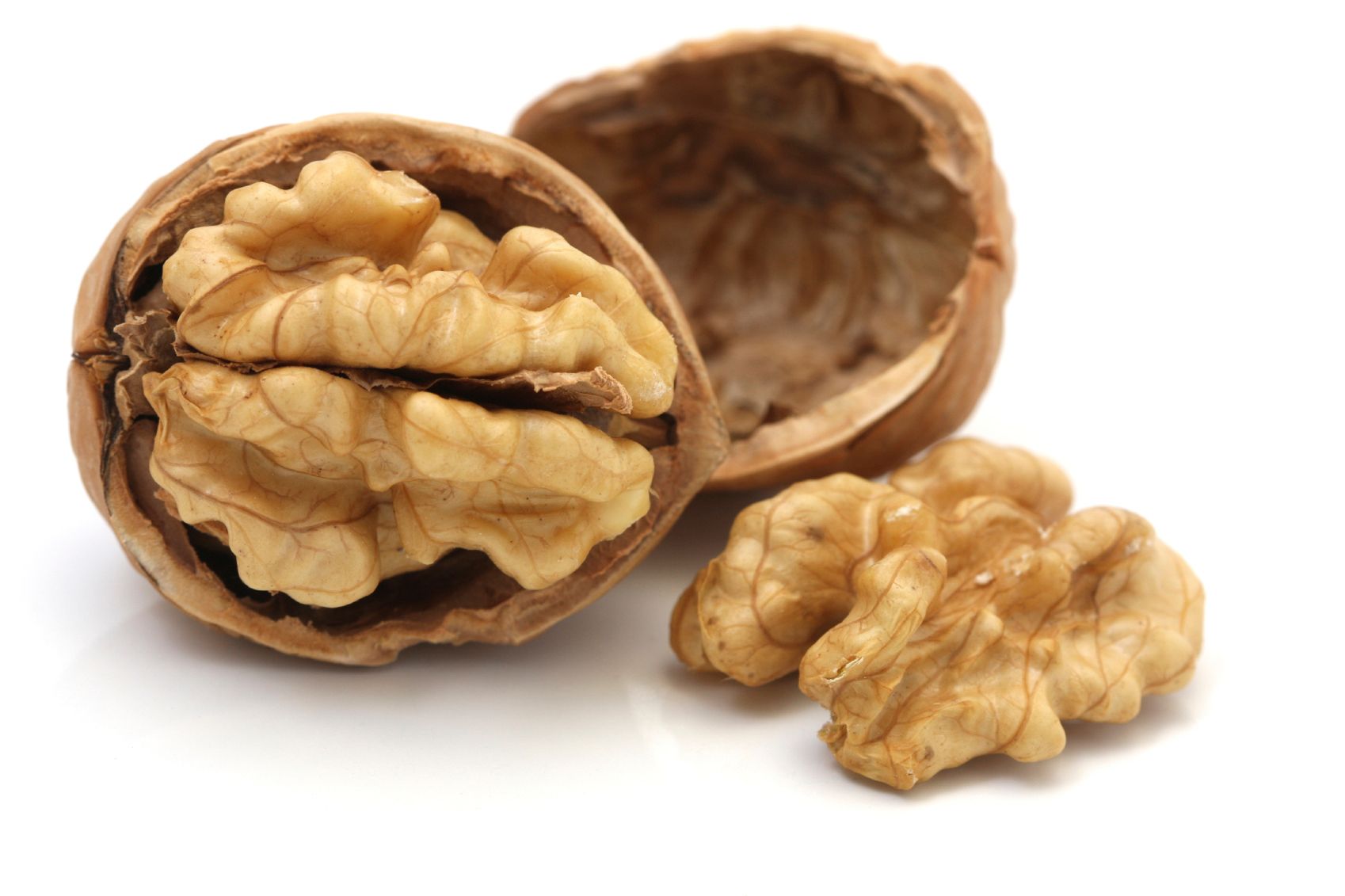Oil May Be Heart-Healthiest Part of Walnut
A study on walnut consumption compares different components of the nut.

By Robby Gardner, Associate Editor
Walnuts may improve heart health beyond just lowering cholesterol, say U.S. researchers. By preparing different components of walnuts for consumption, researchers were able to pinpoint different vascular effects of walnut based on the type of product consumed: the whole nut, the skin, the defatted meal, or the oil.
In crossover fashion, 15 human subjects with high cholesterol ate one of the four walnut products. Blood readings were taken at baseline and post-walnut consumption (30 minutes, 1 hour, 2 hours, 4 hours, and 6 hours), and results differed from product to product. Antioxidant capacity improved with walnut oil and skin, but the oil was the only product capable of maintaining endothelial function, the ability of blood vessels to contract. Whole walnuts, which contain the oil, increased the removal of excess cholesterol from the body.
Walnuts are rich sources of omega-3 ALA, gamma-tocopherol, and plant sterols, and these nutrients are all present in the oil. The apparent cardiovascular benefits of walnuts now appear more tied to walnut oil than any other part of the walnut.
The California Walnut Commission funded this study, now published in The Journal of Nutrition.



